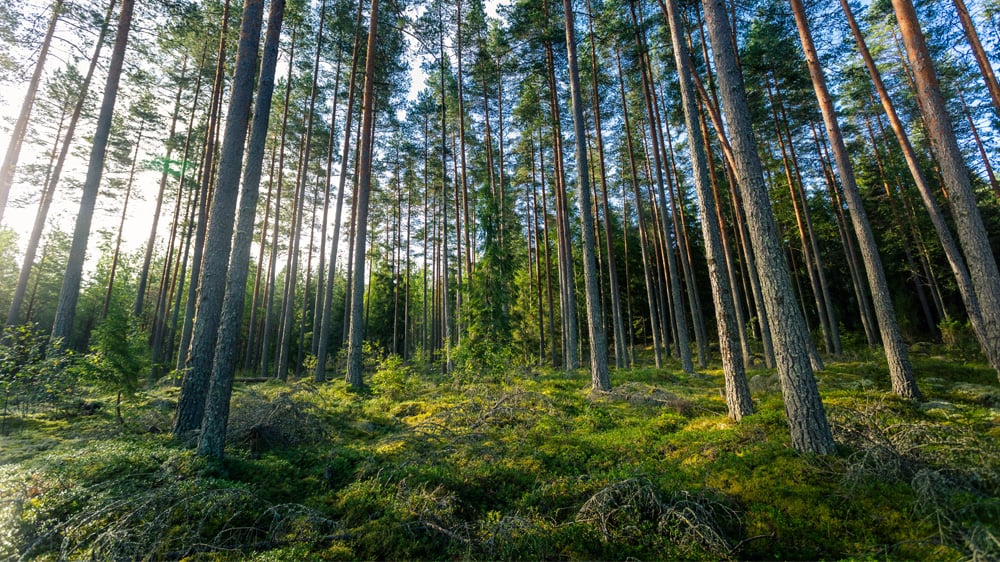UPM Raflatac is a strong promoter of the sustainable use of forests and land through its products and services. Well-managed forests and land absorbs CO2 from the atmosphere and stores it in their biomass and increasing the capacity of forests as carbon sinks is one of the key aspects of keeping global warming limited to 1.5 °C.

"As we move beyond fossils at UPM Raflatac, our focus is on both land and forests as sources of various biobased raw materials. Besides forests being the source of renewable biobased raw materials, it is also important to understand the entire carbon cycle, including the effects on carbon sinks. We rely on credible certified fiber sources such as FSC to verify carbon sinks are managed effectively," explains Robert Taylor, the Director of Sustainability of UPM Raflatac.
Wood fiber and other biobased materials play an important role in Raflatac products, which highlights the importance of raw material choices.
"The most significant climate impact of a label’s life cycle comes from the choice of raw materials. This means we need to be efficient and optimize our processes to use the least amount of wood fiber as possible. This has a knock-on effect of reducing the pressure on forests and logging," says Taylor.
Certifying the future
Janne Näräkkä has worked for the past six years with the Forest Stewardship Council (FSC), which is the world's most trusted sustainability certification system for forest products. He currently represents four large forest companies on the board of FSC and has the position of Director of FSC Certification at UPM Forest North Europe.
A forest that gets awarded with FSC certificate is required to meet various environmental, economic and social criteria.
"Well-managed forestlands are essential in fighting global warming through carbon sequestration and storing. The problem globally is that many countries lack the legislative tools to ensure that forests are maintained as forests and managed in a sustainable way. By increasing the demand of certified raw materials such as certified wood fiber, it is possible to contribute to better forest management and also promote climate-positive forestry," explains Näräkkä.
UPM Raflatac is committed to using only certified paper and traceable biobased raw materials by 2030. Certification for products guarantees customers and stakeholders that the wood and fiber originate from well-managed forests, controlled sources or recycled material. Certified forests have become a major focus through the labeling and packaging industry in mitigating climate change.
Forest initiatives in the new normal
In the upcoming years, one of the most important goals for FSC is producing and implementing a more focused climate strategy. While traditionally FSC’s focus has been mainly in the certification of wood, in the future FSC aims to expand the perspective. Other aspects of the forest have an inherent value as well.
"It could be things such as carbon, biodiversity, recreation, purification of water or improvement of soil. In the future FSC will try to offer a wider range of solutions and tools for forest owners and companies to promote and benefit from climate-positive forestry," explains Näräkkä.
Global megatrends are driving the demand for sustainable and carbon neutral products. FSC’s future objectives include increasing the measurability and demonstration of FSC’s impact on the ground, including climate benefits of well-managed forests.
"FSC’s goal is to increase the number of certified forests globally and we need to be more precise with what actual benefits have occurred in the forests due to the certification. These changes should be more easily measurable and demonstrable for the companies who could utilize this information in their own reporting and communication, for example. This could also provide more value for companies from their investments in FSC and thus make FSC certification more attractive," tells Näräkkä.
Whilst contemplating the future one might also easily forget how far we have come in terms of how societies view the importance of climate-positive products and forestry. In the talks with stakeholders, brand owners and distributors, there is an unquestionable change of mindset.
"We don’t need to convince the majority of people anymore. Consumers, brands and our customers recognize the need for climate action. Climate goals are widely adopted in legislation and integrated to company strategies across the world. Our task is to ensure we provide the products and services that enables those at the forefront of mitigating climate change in packaging to make the smart choices needed," Taylor concludes.